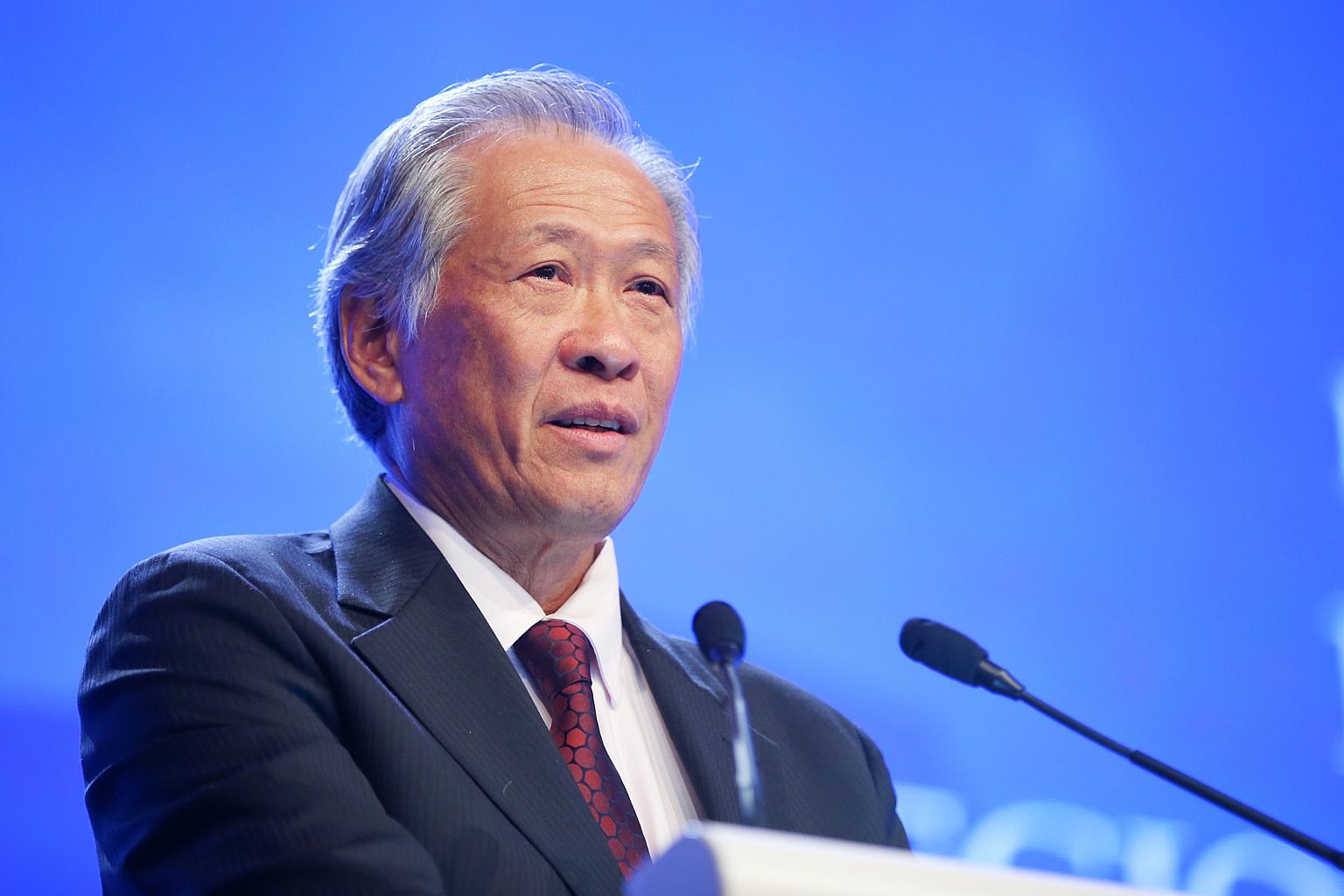US, China should work together on a rules-based order: Ng Eng Hen
Sign up now: Get ST's newsletters delivered to your inbox

Singapore Defence Minister Ng Eng Hen speaking at the fifth plenary session of the Shangri-La Dialogue on June 3, 2018.
ST PHOTO: GAVIN FOO
SINGAPORE - Both the United States and China are deviating from global norms and acting on their own to protect their core interests, but this challenges the status quo Asia has benefited from, said Defence Minister Ng Eng Hen on Sunday (June 3) at the Shangri-La Dialogue.
It would be a lose-lose scenario for the world if the US and China are unwilling to work together on an inclusive, rules-based system, he said during a session on regional security cooperation.
In his speech, he sketched out changes to the international order, and how "both China and the US are attempting to address perceived inequalities and accepted principles or practices which disadvantage them".
The US may be the champion of today's globalisation, but it is revisiting this very status quo to address perceived inequalities, said Dr Ng.
He cited how the US recently slapped unilateral tariffs on steel and aluminium imports based on grounds of national security.
"The US has put forth its case for such a unilateral action, whether or not other countries accept that it complies with World Trade Organisation rules, let alone principles," he said.
Similarly for security reasons, claimant states in the South China Sea have taken unilateral actions in disputed areas to protect their own core interests, he said.
China was criticised on the first day of the Shangri-La Dialogue for ramping up its deployment of missiles and other defence systems to the disputed waters.
Dr Ng noted that China stakes its claims on historical grounds and, despite the rulings of The Hague tribunal brought about by the Philippines, has intensified its built-up facilities as a forward position against possible encirclement.
These include intelligence, surveillance and reconnaissance, and even counter-offensive weapon systems on disputed territories, he noted.
Both the US and China used core security considerations to justify the need for such actions.
Said Dr Ng: "Whatever the merits of arguments, these deviations from global norms challenge the status quo and accepted rules which have hitherto benefited Asia, and the regions beyond.
"All of us would agree that it is in our collective interest to preserve a system that has lifted millions in Asia from poverty."
He added that Asia needs the stability that only a rules-based order can provide, to continue to prosper.
Later, he told reporters a key question was how the US and China should proceed, having aired their disagreements in areas like free trade and the South China Sea.
"All countries have that legitimate right...that when you see something working which doesn't quite benefit you, or benefits others more than you, you want to change it," he said.
"The question is then how do you resolve it...by extreme force or power, dialogue, or accommodation? If you make an agreement with someone to buy his home then he changes the price, do you then forcibly go into the home, or do you decide there are other mechanisms?"
Dr Ng noted that Chinese President Xi Jinping himself championed globalisation in his keynote address at Boao Forum for Asia in April, and understood the need for a rules-based order.
He said: "But what are the rules? And what happens when rules are not completely followed or when new rules appear? How do we resolve those differences?
"Those are questions that not only China and the US, but all of us, must contend with because it will affect us all."


